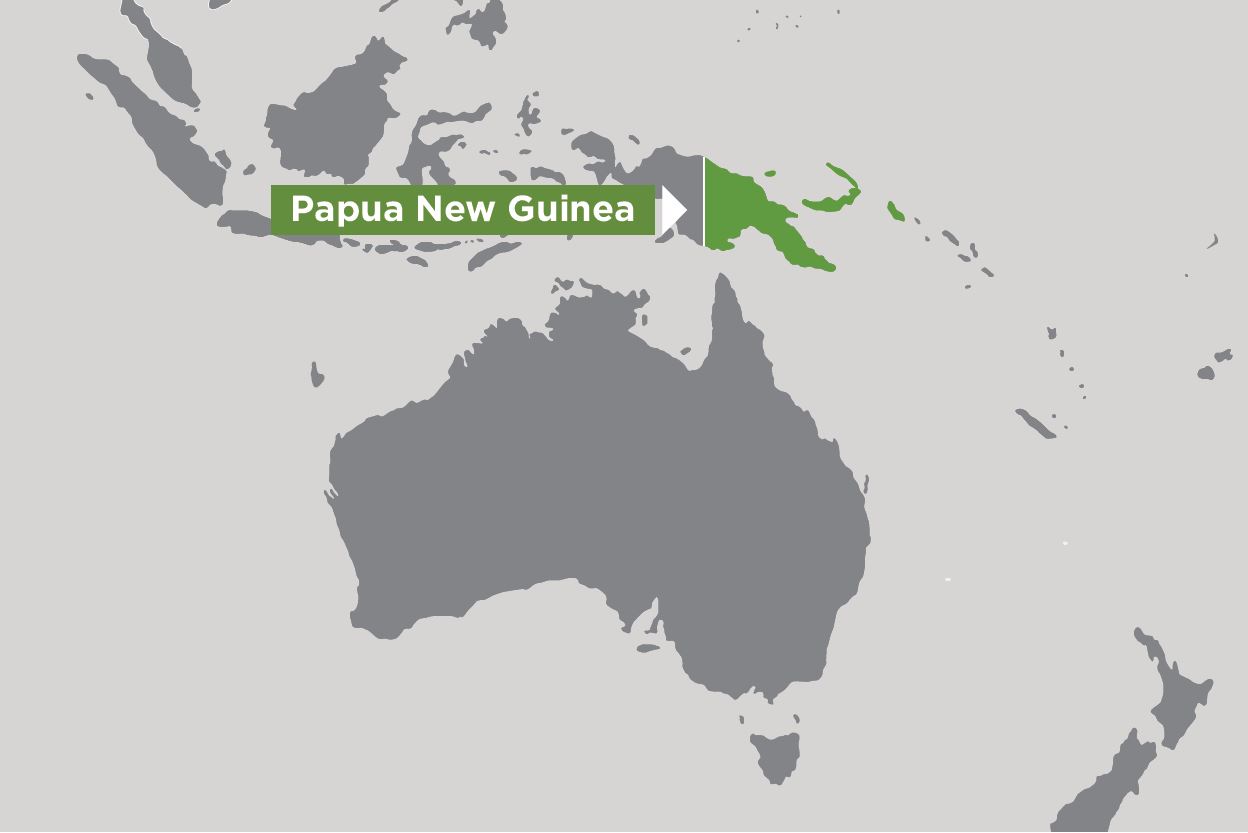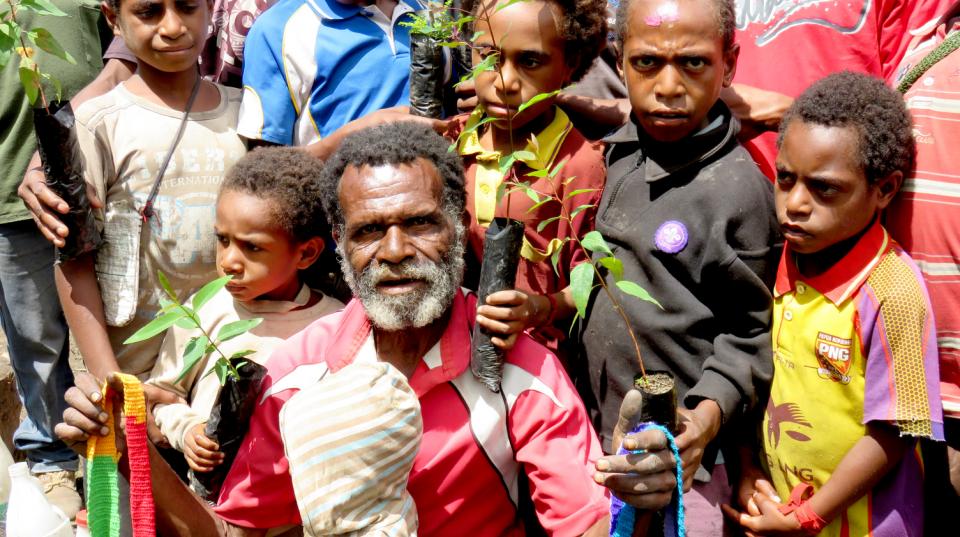Overview
This project aimed to improve rural livelihoods through family-focused community reforestation and agroforestry in PNG.
In Papua New Guinea (PNG), nearly two-thirds of the land is covered by forests, 97% of which are held under custom landownership; therefore, community forestry offers an opportunity to improve rural livelihoods. Women play a key role in obtaining and managing forestry household resources.
Recognising the forestry sector’s huge contributions to the national economy, the Government of PNG has been committed to building a sustainable and highly profitable forestry sector including increasing the area of planted forests. It views community forestry as vital to achieving this goal, focusing on five key factors to success: the importance of effective governance; secure property rights; social equity; government support; and tangible benefits.
Community-based reforestation and/or agroforestry in the grasslands has great potential to produce economic returns to clans, while also producing positive social and environmental outcomes. The results of the research undertaken in this project will be directly applicable to the PNG Forest Authority reforestation program ‘Painim Graun, Plannim Diwai’.
Project outcomes
- Improved research skills (social and biophysical sciences) of project partners.
- Recommendations to PNG Forest Authority for policy changes to facilitate improved application of community forestry.
- Improved skills of families for reforestation practices, including the establishment of integrated agricultural and forestry systems along with improved livelihood options and greater food security of community members.
- Improved access of communities to formal timber markets.






